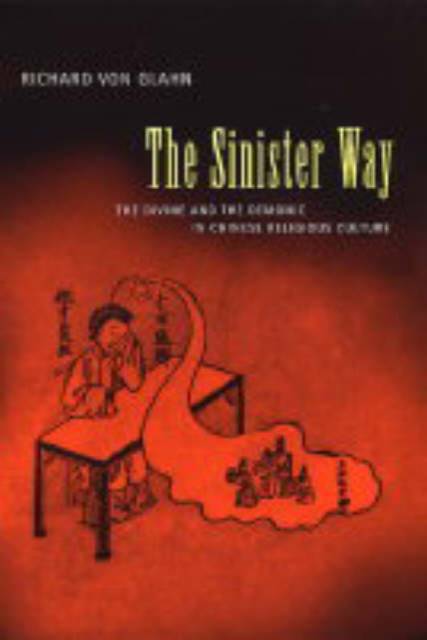
- Afhalen na 1 uur in een winkel met voorraad
- Gratis thuislevering in België vanaf € 30
- Ruim aanbod met 7 miljoen producten
- Afhalen na 1 uur in een winkel met voorraad
- Gratis thuislevering in België vanaf € 30
- Ruim aanbod met 7 miljoen producten
Zoeken
The Sinister Way
The Divine and the Demonic in Chinese Religious Culture
Richard Von Glahn
Hardcover | Engels
€ 144,45
+ 288 punten
Omschrijving
The most striking feature of Wutong, the preeminent God of Wealth in late imperial China, was the deity's diabolical character. Wutong was perceived not as a heroic figure or paragon of noble qualities but rather as an embodiment of humanity's basest vices, greed and lust, a maleficent demon who preyed on the weak and vulnerable. In The Sinister Way, Richard von Glahn examines the emergence and evolution of the Wutong cult within the larger framework of the historical development of Chinese popular or vernacular religion-as opposed to institutional religions such as Buddhism or Daoism. Von Glahn's study, spanning three millennia, gives due recognition to the morally ambivalent and demonic aspects of divine power within the common Chinese religious culture.
Specificaties
Betrokkenen
- Auteur(s):
- Uitgeverij:
Inhoud
- Aantal bladzijden:
- 400
- Taal:
- Engels
Eigenschappen
- Productcode (EAN):
- 9780520234086
- Verschijningsdatum:
- 20/04/2004
- Uitvoering:
- Hardcover
- Formaat:
- Genaaid
- Afmetingen:
- 162 mm x 236 mm
- Gewicht:
- 752 g

Alleen bij Standaard Boekhandel
+ 288 punten op je klantenkaart van Standaard Boekhandel
Beoordelingen
We publiceren alleen reviews die voldoen aan de voorwaarden voor reviews. Bekijk onze voorwaarden voor reviews.











